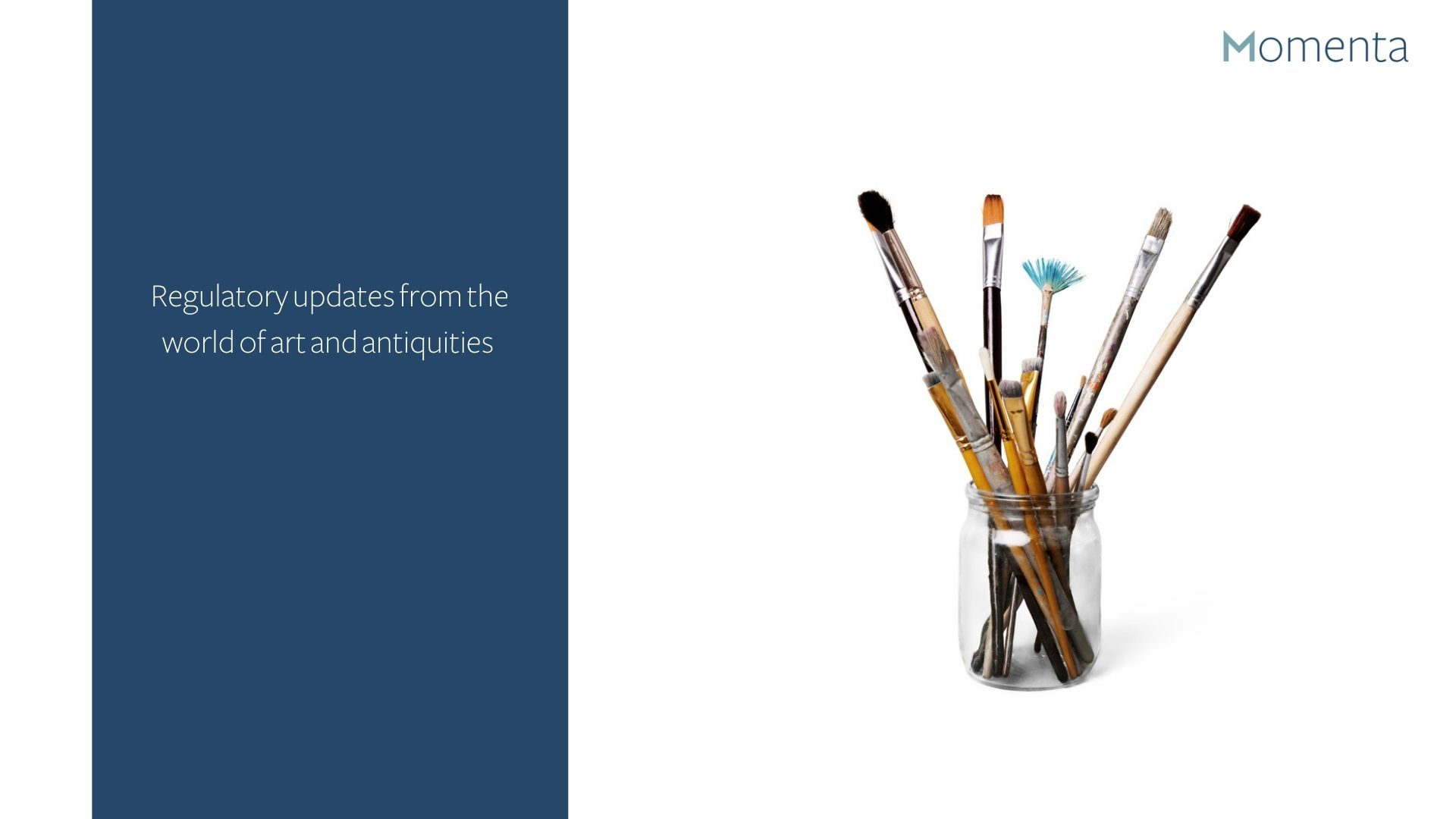Regulatory updates from the world of art and antiquities
The global art market is under growing scrutiny from governments in the UK, Europe, and the United States, who perceive it as vulnerable to money launderers. Despite the absence of any hard evidence, the sectors longstanding propensity for perceived secrecy fosters the notion that this $50 billion global market is routinely utilised to launder criminal proceeds.
What are the market updates in Europe?
The European Union began regulating the art market in 2018, well before NFTs and the rise of internet sales, with the passing of the 5th Anti-Money Laundering Directive, which introduced the art industry to the regulated sector.
The directive entered into force in 2020, and it applies to certain art market transactions of €10,000 or more. However, each EU country has the authority to execute the directive in accordance with own its domestic laws, resulting in a lack of consistency across the EU.
The big ‘B’ and UK market outlooks
Despite Brexit, the UK remained completely committed to the directive and met the January 2020 implementation date.
The UK’s implementation is the most comprehensive in Europe, if not the world. Money laundering restrictions apply to British art dealers, auctioneers, and advisors involved in the sale of fine art, pictures, prints, and a few other categories, like those that apply to UK bankers and attorneys.
They must comply with additional obligations in addition to registering with the UK supervising authority (HMRC), such as conducting Know Your Client (KYC) and Customer Due Diligence (CDD) checks, conducting a risk assessment, adopting an AML policy, and filing Suspicious Activity Reports with the UK’s National Crime Service, among other things.
The UK regime extends beyond its borders, covering non-UK branches and subsidiaries of UK companies. Furthermore, non-UK art market participants must observe local restrictions when transacting in the UK, such as at art fairs. This is no easy task. With the continuation of the UK’s foremost international art shows, visiting galleries are now subject to laws that few dealers fully comprehend. Non-compliance has substantial implications, with individuals found in violation facing incarceration and substantial fines.
How have AMPs been impacted by new regulations?
It’s almost impossible to say how business has been affected in the two years after the regulations went into effect. Anecdotally, there is conflict in foreign purchases involving US buyers since US trade and art buyers are hesitant to provide personal identity information because the US does not (yet) need it.
Furthermore, several non-UK fair guests at recent international London fairs chose to completely disregard the new compliance rulings, while others relied on simple online searches to screen potential consumers. Although internet searches are a start in the right direction, they are certainly insufficient to meet regulatory requirements on their own.
Why are there differing opinions when it comes to compliance outlooks globally?
The challenge of compliance is surely aggravated by the global inconsistency of legislation. The EU, on the other hand, is not the only one who regulates the art market. Even though the United States is following the EU’s lead, the initial scope of the US rules excludes “flat art.”
The United States updated its national anti-money laundering regime to encompass antiquities merchants in January 2021. Furthermore, the US Department of the Treasury is debating whether US anti-money laundering legislation should be extended beyond antiquities, and if so, to what other sorts of art and at what price ranges. The UK on the other hand, has solicited public feedback on whether it should strengthen its antiquities restrictions.
Most individuals believe that the United States will follow the United Kingdom’s lead and expand its laws to cover fine art. In contrast, the United Kingdom may opt to broaden the scope of its policy to include antiquities. One could argue that constancy in two of the world’s most important art markets is a positive thing. More than consistency, leading to the hope that, in the not-too-distant future, art market AML regulation measures are founded on firm facts rather than firm views.
How can Momenta hep you get your AML efforts right?
Momenta are a global contingent resource solutions firm that has, for over 30 years, been partnering with companies in the financial services, legal, technology, and training and development sectors to cost-effectively provide the right people, with the right skills, at exactly the right time.
Providing experienced resource to undertake reviews is Momenta’s core competence and with over 30 years’ experience of providing compliance resource, we have suitable candidates to put forward immediately that would only need a familiarisation/induction program to cover client’s internal standards, processes, and systems.
Many clients prefer to buy a managed integrated service solution that can deliver greater flexibility and offer scaling to absorb spikes in volume and cost benefits through fixed pricing.
Contact us today to discuss the best option in getting your compliance journey right.

